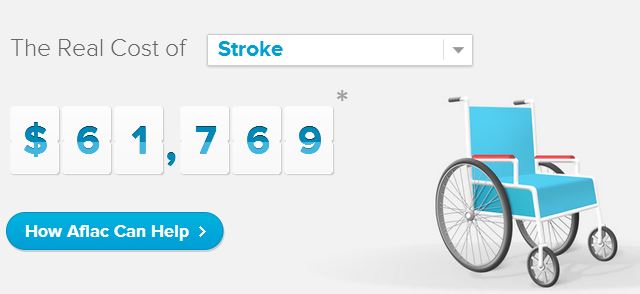Last Updated on September 4, 2020 by Ellen Christian
This financial planning for illness post has been brought to you by Aflac. All opinions are mine and mine alone.
Posts may be sponsored. This post contains affiliate links, which means I will make a commission at no extra cost to you should you click through and make a purchase. As an Amazon Associate I earn from qualifying purchases.
Ten years ago, we were a typical two income family. My husband worked full time in maintenance and I worked full time in an office. We were young and hadn’t really given much thought to financial planning for illness or anything else. One day, my husband injured his back moving wood. It was a nagging pain that never went away despite physical therapy and medication. Since we needed that weekly paycheck, my husband continued to work and went to physical therapy with the hope it would improve. After a car accident one winter, his back got worse. He couldn’t continue to work and used up sick days and vacation days in pain in bed. After another visit to the doctor, they tried steroid injections in his back to help the pain. He had some slight improvement but not enough to stand on his feet all day at work. The doctor recommended surgery on his back and he found himself without a job after his short term disability ran out and he couldn’t go back to work.
Financial Planning For Illness
Not only did we have bills from his surgery, doctor’s visits, and prescriptions that his insurance would not cover, we found ourselves trying to live on my income alone. I started taking work online at night to bring in extra money while trying to juggle all of the housework and taking care of my husband who was not able to do much after his surgery. His back never healed and after more injections and another surgery, he is now officially disabled. During this process, I asked myself many times “Why didn’t you plan for emergencies?” You never think a sudden illness or emergency will happen to you especially when you’re young. But it can. Thinking about financial planning for illness now may save you in the future.
If you’re hit with a long term illness or injury, your normal household expenses won’t stop being due. You will still have a mortgage or rent to pay. You’ll still need to pay for electricity and your telephone and heat. Since we never used our major medical insurance, I had no idea that there were expenses that my insurance didn’t cover. After all, I had no co-pay for a doctor’s visit for a sore throat. Who knew I would have thousands of dollars to deal with that insurance wouldn’t handle. Do you know how much it really costs if you get injured?
Aflac has a real cost calculator that will show you how much it really costs to get sick or injured. You can enter information about your age and gender and then select different types of illnesses and injuries – from a broken leg to cancer – and see what the real cost would be for medical expenses, household expenses, and out of pocket expenses. You can make adjustments based on the type of insurance you have, your monthly expenses and income and your family size. Then you can see how some of Aflac’s policies can help you in the event you find yourself in this situation. As our health insurance coverage and costs change, it will be even more important to make sure that you’ve thought of financial planning for illness. It’s a free calculator and it only takes a minute of our time to use. Take a look today just to see what types of costs you’d have to deal with. You might be surprised how financial planning for illness can help.
I participated in a campaign on behalf of Mom Central Consulting for Aflac. I received a promotional item as a thank you for participating.

Ellen is a busy mom of a 24-year-old son and 29-year-old daughter. She owns six blogs and is addicted to social media. She believes that it doesn’t have to be difficult to lead a healthy life. She shares simple healthy living tips to show busy women how to lead fulfilling lives. If you’d like to work together, email info@confessionsofanover-workedmom.com to chat.


Your husband’s experience is a learning lesson for us all. We all need to prepare for unforeseen illness or accidents, thanks for your article.
That’s really true. It’s so important to start preparing now.
Lack of free health care is one of the reasons I won’t move to the US. I know we complain about our health care system in Canada but at least we don’t have to really worry about all the medical bills piling up if something happens. I hear how much people pay and its shocking! I would definitely be planning ahead like you mentioned if I lived there.
It certainly can be a huge expense!
I work in healthcare and can definitely say that unexpected medical costs can really break a family’s budget! Planning is very important!
You must see an awful lot of that!
This is so important. I ended up having an emergency gall bladder surgery a few years back and was not at all prepared for it. Because I worked for myself, I also had to factor in time off of work, opportunities missed, and the cost of the hospital stay and surgeon. Financial planning and being prepared are so very important because you just never know when something could happen.
That’s even harder when you work for yourself!
It’s very important. You think you’re invincible when you are young. I never thought I’d have two brain surgeries and end up with chronic pain and a progressive disease at 36. Our lives turned upside down. When the paperwork came through every year I picked the lowest disability insurance I could – very stupid decision – but at least I had it! I had to leave work at 37. Fortunately my husband’s income could support us.
You never know what is lurking.
That is so true! I really wish it was something we thought of when we were much younger!